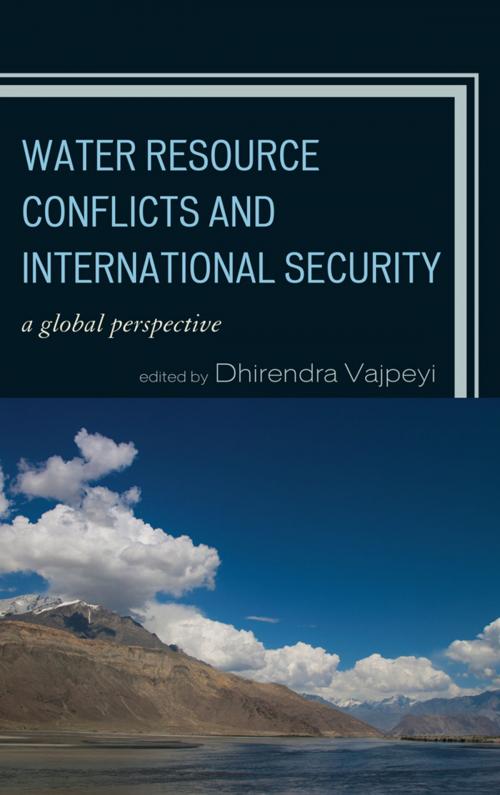Water Resource Conflicts and International Security
A Global Perspective
Nonfiction, Social & Cultural Studies, Political Science, Politics, Economic Conditions, International, International Relations| Author: | ISBN: | 9780739170847 | |
| Publisher: | Lexington Books | Publication: | December 16, 2011 |
| Imprint: | Lexington Books | Language: | English |
| Author: | |
| ISBN: | 9780739170847 |
| Publisher: | Lexington Books |
| Publication: | December 16, 2011 |
| Imprint: | Lexington Books |
| Language: | English |
Water Resource Conflicts and International Security: A Global Perspective is an edited collection by Dhirendra K. Vajpeyi which analyzes the increasing global demand for water in economic and social development, and the dire need to efficiently manage this vital natural resource, particularly in water-scarce countries in the Middle East, Asia, and Africa. Several environmental- and human-induced factors, such as urbanization, industrialization, climate change, and agricultural needs, have created a near-crisis situation in many countries. Subsequently, there is an increasingly intense competition to utilize available water resources in these most heavily-affected regions; transboundary rivers, lakes, and streams which are shared by more than one country pose potential for political conflict, armed conflict, and, in the best of cases, cooperation. The contributors of Water Resource Conflicts and International Security present ten case studies in seven chapters, highlighting the competition between countries in Asia, Africa, and the Middle East. In his conclusion, Dhirendra K. Vajpeyi suggests several policy measures that governments may implement in order to minimize the potential for conflict.
Water Resource Conflicts and International Security: A Global Perspective is an edited collection by Dhirendra K. Vajpeyi which analyzes the increasing global demand for water in economic and social development, and the dire need to efficiently manage this vital natural resource, particularly in water-scarce countries in the Middle East, Asia, and Africa. Several environmental- and human-induced factors, such as urbanization, industrialization, climate change, and agricultural needs, have created a near-crisis situation in many countries. Subsequently, there is an increasingly intense competition to utilize available water resources in these most heavily-affected regions; transboundary rivers, lakes, and streams which are shared by more than one country pose potential for political conflict, armed conflict, and, in the best of cases, cooperation. The contributors of Water Resource Conflicts and International Security present ten case studies in seven chapters, highlighting the competition between countries in Asia, Africa, and the Middle East. In his conclusion, Dhirendra K. Vajpeyi suggests several policy measures that governments may implement in order to minimize the potential for conflict.















